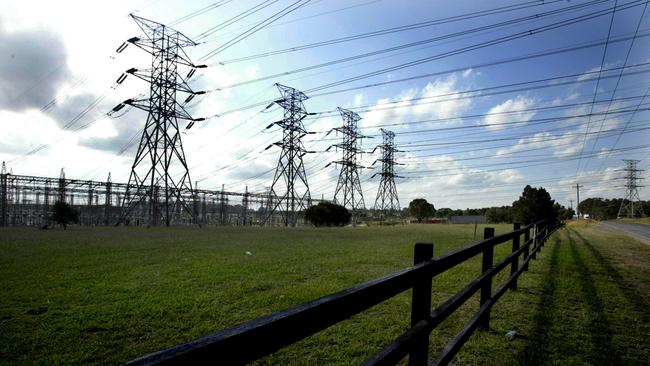
Back in 2016 State Grid was looking to secure a 99-year lease and control of Ausgrid to build on its stakes in electricity companies AusNet Services, Jemena and ElectraNet.
Morrison rejected the tilt on national security grounds despite the Chinese firm’s bid being up to $4bn higher than the winning offer from two major Australian superannuation funds.
Beijing said the decision would reduce the appetite of Chinese companies to invest in Australia.
State Grid looked elsewhere and continued to invest internationally but kept its existing Australian assets intact.
How it treats one of those investments – a 19.9 per cent stake in AusNet – will go a long way to determining who will take home the spoils of a $10bn takeover battle for the Victorian power grid owner.
The Chinese giant is unlikely to publicly display its hand. But along with AusNet’s 32 per cent owner Singapore Power, it faces a range of options over how to deal with Canada’s Brookfield’s $9.6bn bid – and potentially a higher $10bn pitch by the ASX-listed APA.
Taking the cash on offer in Brookfield’s $2.50-a-share tilt would make for a clean exit and a hefty payday nearly eight years after it first acquired its stake.
The other options on the table could see it hold its stake under Brookfield’s ownership or, most intriguingly, take both cash and shares in APA should the Michael Fraser-led board ultimately prevail.
Either of those would present a serious test of the Foreign Investment Review Board’s sensitivities around critical energy infrastructure and the beefed-up ‘‘last resort’’ power introduced by Treasurer Josh Frydenberg in 2020.
APA said on Tuesday it had discussed its proposal directly with State Grid. That may be so, but it already faces an eight-week handicap after AusNet’s intriguing decision to hand exclusive due diligence to Brookfield.
APA, upset by what it sees as game playing by AusNet, was quick to play the national interest card and appeal to investors, saying a major utility could remain in Australian hands if its higher bid progressed.
It’s unclear whether Brookfield has State Grid on side but how the Chinese company plays its hand may make the battle for AusNet much more than another infrastructure play.
APA, more than most, is well aware of the sensitivities at play. It fielded a $13bn takeover in 2018 from Hong Kong’s CK Infrastructure which was only abandoned when Frydenberg blocked the bid on national interest grounds.
That day APA’s shares closed at $8.75. Nearly three years on the gas operator is worse off at $8.46.
Investors have questioned whether the AusNet deal would deliver much in the way of extra value to APA, and if it succeeds, its plans for a major deal in the North American gas sector would also surely have to be called into question.
APA’s board now has an agonising wait to weigh up its choices while Brookfield grows closer to its target.
China Grid and Singapore Power will be watching from the sidelines, and with full disclosure of both APA and Brookfield’s bid history now on show, rival bidders may also be preparing their own swoop.




Five years after then treasurer Scott Morrison knocked back China’s State Grid Corporation’s bid for NSW electricity distributor Ausgrid, the state-owned giant has again emerged in the thick of a contentious takeover battle for some of Australia’s prime energy assets.